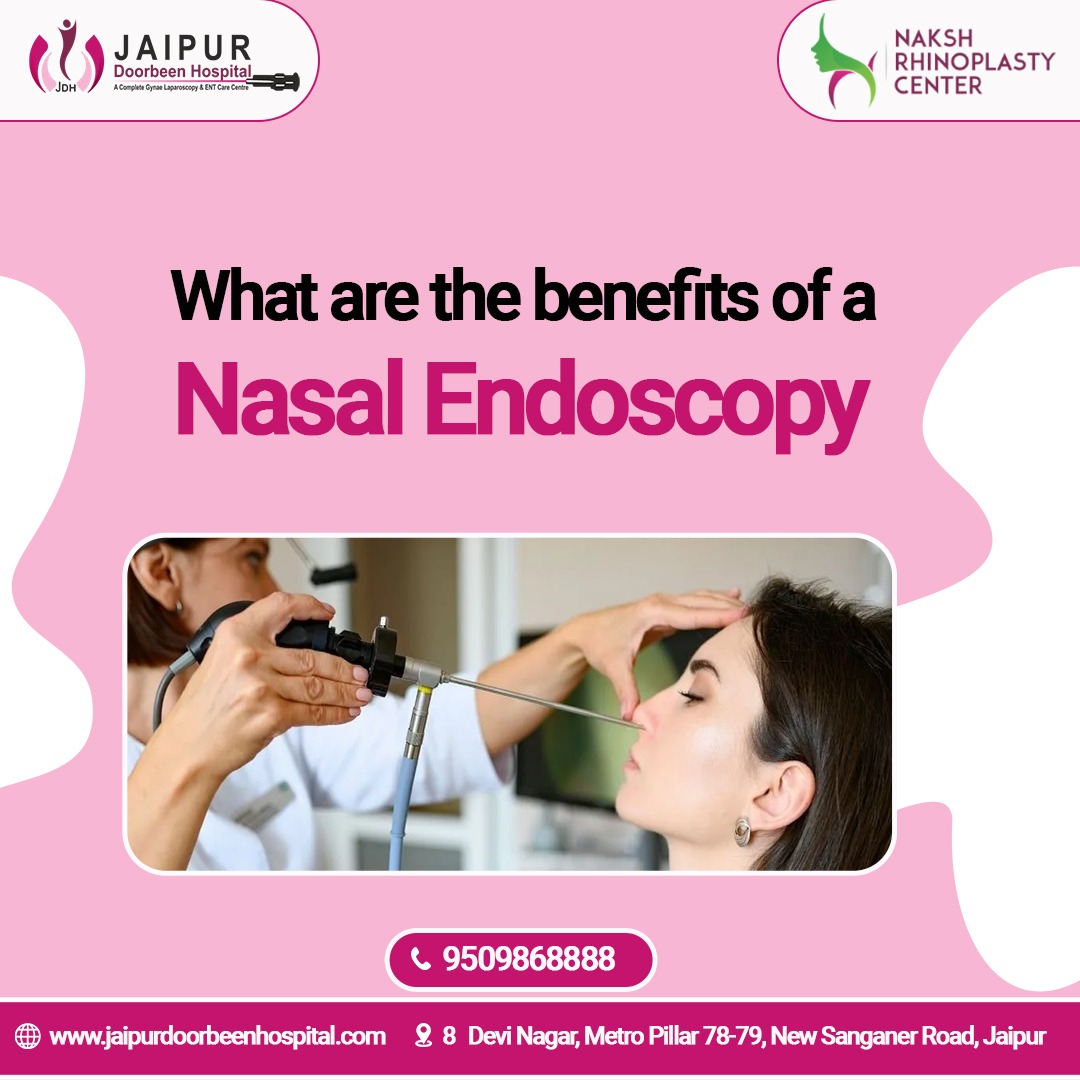19 January, 2024

Nasal endoscopy, also known as rhinoscopy, is a cutting-edge diagnostic procedure that offers a minimally invasive glimpse into the intricate world of the nasal passages and sinuses. Conducted by skilled otolaryngologists like Dr. Sunil Tanwar, this procedure is equipped with a thin, flexible tube and fiber-optic cables, providing high-quality, magnified images for precise examination.
Nasal endoscopy is a diagnostic marvel in the medical field, allowing physicians to explore the interior surfaces of nasal tissues and sinuses. Dr. Sunil Tanwar, an expert in otolaryngology, utilizes a specialized instrument comprising a rigid, thin tube with fiber-optic cables connected to a video camera and light source. The resulting magnified images provide a detailed view of the nasal cavity and sinuses, aiding in accurate diagnoses and tailored treatment plans.
While nasal endoscopy is generally considered low-risk, potential side effects or complications may arise. Common side effects include mild discomfort, bleeding, or mucosal trauma. Special considerations are necessary for individuals taking anticoagulant medications, and precautions are taken to minimize adverse reactions to anesthetics or decongestants.
Dr. Sunil Tanwar may recommend nasal endoscopy for a variety of issues, including nasal blockage, congestion, nosebleeds, nasal polyps, rhinosinusitis, nasal tumour’s, cerebrospinal fluid leaks, and loss of ability to smell. The procedure provides crucial details about swelling, bleeding, or growths that aid in accurate diagnoses and informed treatment decisions.
In conclusion, nasal endoscopy stands as a transformative diagnostic tool, offering a panoramic view of nasal and sinus conditions. Dr. Sunil Tanwar expertise in utilizing this procedure ensures precise diagnoses and tailored treatment plans, making it an indispensable component of modern otolaryngology practice. For individuals seeking a comprehensive understanding of their nasal health, nasal endoscopy emerges as a beacon of clarity, guided by the skilled hands of experienced professionals like Dr. Sunil Tanwar.